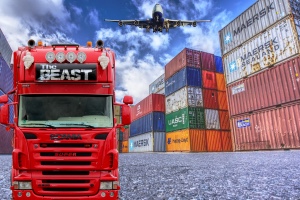
Geneva: Five years since the Trade Facilitation Agreement (TFA) entered into force on February 22, 2017, global trade flows are well-positioned for a COVID-19 recovery on the back of World Trade Organization (WTO) members’ steady progress in implementing the landmark Agreement. Director-General Ngozi Okonjo-Iweala said the TFA has helped support global supply chain resilience and called for further work to help economies withstand future challenges.
As of February 22, 2022, notifications submitted by WTO members indicate that they have committed to implementing 74.3% of TFA obligations at present.
The TFA, which contains commitments to expedite the movement, release and clearance of goods, including goods in transit, entered into force five years ago when the WTO obtained the two-thirds acceptance of the Agreement from its 164 members. It also contains provisions to help developing and least-developed countries (LDCs) obtain technical assistance and capacity building to implement the TFA.
Also read: Turning point for global trade as supply pressures ease: WTO
The TFA is the first WTO agreement in which developing and LDC members can determine their own implementation schedules and seek to acquire implementation capacity through the provision of related assistance and support. Developed members were required to implement all provisions of the TFA from its entry into force.
Human resources and training, assistance in amending laws or regulations or implementing new ones, and information and communication technologies are among the most common types of requests for technical assistance and capacity building filed by developing countries and LDCs according to the report from the first-ever review of the TFA, which members concluded last November.
The report includes a list of presentations members made on trade facilitating measures they took to mitigate the COVID-19 crisis. Tonga, for example, utilized Article 7.8 of the TFA to expedite shipments and facilitate the importation of the COVID-19 vaccine while Paraguay and the European Union cited the benefits of establishing digitized processes, encouraged under the TFA, to enable remote work and business continuity during the pandemic.
– global bihari bureau





